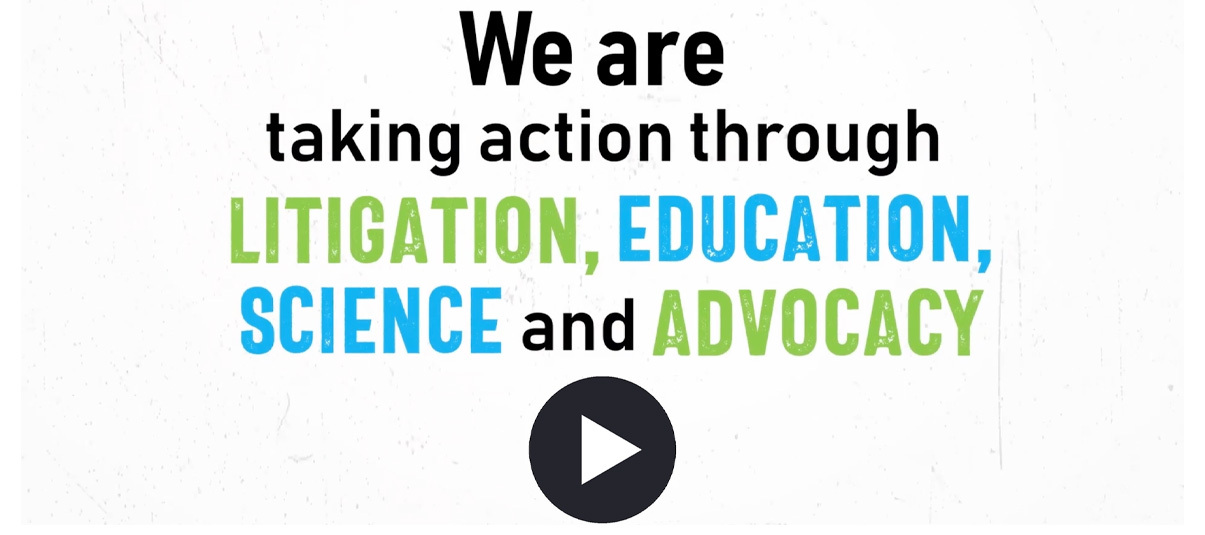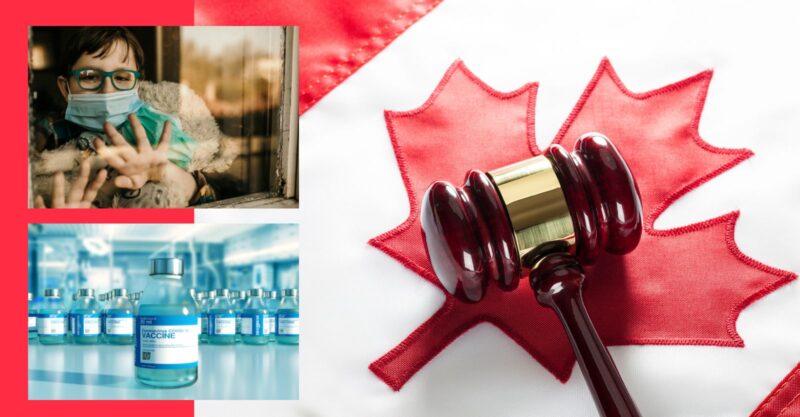Mootness & Judicial Notice: The Double-Edged Sword for Killing COVID Constitutional Challenges
Canadians who tried to challenge “lockdowns,” a term used for inmates in penitentiaries, and “lock-outs” via COVID mandates from February 2020 onwards in Federal Courts, are out of luck!
After five years, Canadian courts have not performed a substantial and thorough review of whether forced PCR testing, quarantines and confinements, mask mandates, vaccine mandates, vaccine passports, and vaccine-status dependant restrictions that denied Canadians their basic human rights and civil liberties were justified. Canadian children, in particular, were disproportionately impacted by these Charter violating measures, especially with school closures and re-opening contingent upon forced masking, medical testing, social distancing, and the most egregious practice of all: solitary isolation and confinement due to suspected illness.[1]
As Canadians sought to challenge the legal validity of these unprecedented Charter violations, by claiming that restrictions were unjustified according to medical and scientific evidence, they were first confronted with limitations on access to the Courts, due to court closures, and then denied access to justice due to cases being delayed or denied on the premise of “mootness.” Both are signs of the times that the Rule of Law[2] in Canada is quickly eroding, and its erosion is felt most by the brave Canadians who sought to challenge government COVID policies by bringing their grievances to court as it became unpopular to assert individual rights for the alleged presumed “greater good.”
Believing in the Constitution of Canada, especially the Charter of Rights and Freedoms, and the role of Canadian courts as a guarantor of the human rights and civil liberties guaranteed in them, they boldly initiated legal challenges. But the doors of justice were shut firmly on their face, over and over, again. First, the Courts themselves “locked down.” Never before had the Courts closed in Canadian history; even during the World Wars Canadian courts remained open. Indeed, it is during times of emergencies and excess use of legislative and executive power by the state that the judiciary needs to be accessible to its citizens to arbitrate between the ruler and the ruled.
It is the Courts alone which perform a check and balance on the use of that power in a free and democratic society-especially at times of crisis. Yet the sharp decline in the Rule of Law became more evident once the COVID legal challenges began to be heard, or rather, not heard, with the judiciary’s liberal application and over utilization of the concepts of “mootness” and “judicial notice.” Illustrations of the legal doctrine of judicial notice can be found HERE.
As for “mootness,” it is a legal doctrine that refers to situations where the issue raised by a legal case has already been resolved or no longer exists as a “live controversy” between the parties. As the mandates were lifted and COVID restrictions disappeared this became the case with COVID litigation. When a case becomes moot, courts may decline to hear it, on the rationale that their decision would have no practical effect, to preserve judicial resources, and to ensure that courts only address issues that require resolution. The Supreme Court of Canada established a two-part test in Borowski [3] to overcome the procedural hurdle of mootness as an absolute bar to judicial consideration. Courts have occasionally chosen to hear moot cases when broader legal principles are at stake. However, in the COVID litigation context, mootness became and remains an excuse for the Courts to ignore significant legal questions from receiving judicial attention and scrutiny, even though COVID cases meet the third exception set out in Borowski: the likelihood of government re-issuing emergency orders under the pretext of public health which may evade review, Courts have failed to apply it to allow COVID challenges to proceed.
Due to the complete shut down of the court system, with every few exemptions, what this meant in the COVID context, was that government emergency measures could not be challenged until the courts re-opened and that only occurred as the polices being challenged were revoked. It also meant the passage of time before the matter got to Court; in which time the government revoked the measure. It became a Catch-22 for citizens, but a green light for authoritarian rule by the state: meaning the Canadian government can act with impunity as long as it rescinds the offensive mandates before it gets to Court.
This was the case with the CHD Canada supported Ontario School Application. Students in Ontario were locked out of schools in March 2020 and only re-opened in September 2020 with COVID mandates. In April 2021 parents and teachers filed an Application in Ontario Superior Court of Justice seeking Declarations that the measures instituted by various Ontario School Boards (school closures, PCR testing, masks, social distancing and quarantines) were unconstitutional; it also sought Prohibition from schools administering PCR tests, forcing masks and closing down; and it sought Mandamus requiring the return of students to school without mandates. In September 2021 Ontario school boards dropped all mandates. Our case became moot, but we can say with confidence that filing the School Application may have positively influenced Ontario School Boards to re-open mandate free schools since they were sent a strong message by a Superior Court judge to back off when they tried to dismiss the case filed by parents and teachers.[4] Cases which exclusively sought these types of remedies from COVID mandates were not heard by the courts because the mandates no longer exist and they are deemed moot. The Ontario Court of Appeal dismissed a Charter challenge to the 2021 public health measures, as moot,[5] requiring all lower Courts to follow its ruling. This is not the only example. Unfortunately, instead of being guarantors of our Charter rights, the courts have become gate keepers to deny citizens who challenge COVID measures access to Constitutional litigation and redress.
[1] Roots, Rights and Risk: Canada, Childhood and the COVID-19 Global Pandemic [2] Watson, J. “You Don’t Know What You’ve Got ‘Til Its Gone” Alberta Law Review, Vol 52, No.4. [3] [1989] 1 S.C.R. 342, The doctrine of mootness is part of a general policy that a court may decline to decide a case which raises merely a hypothetical or abstract question. An appeal is moot when a decision will not have the effect of resolving some controversy affecting or potentially affecting the rights of the parties. Such a live controversy must be present not only when the action or proceeding is commenced but also when the court is called upon to reach a decision. The general policy is enforced in moot cases unless the court exercises its discretion to depart from it.HERE
[4] On May 27, 2021, a judge of the Superior Court ruled that the school application “cites known grounds of Charter challenge” and that it is not “frivolous and vexatious”. The Superior Court ruling states that it is necessary to have a “complete record and full legal arguments” to determine the case. [5] Harjee v. Ontario, 2023 ONCA 716 (CanLII), <HERE>,
*********************************************************************************************************************

